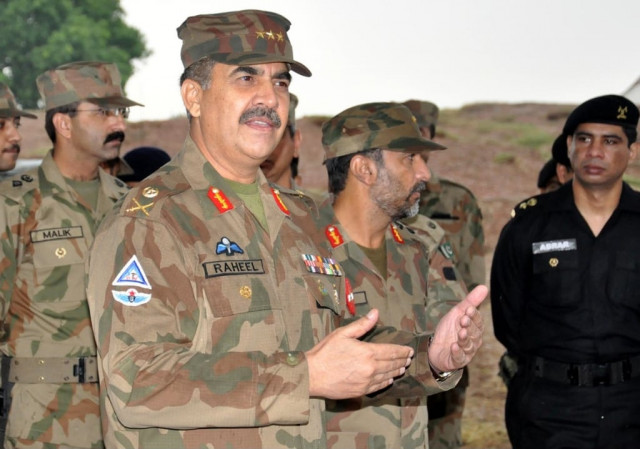Military order
The new army chief will be stepping into a tough job.

Lieutenant General Raheel Sharif. PHOTO: INP

The man at the top of the seniority list, Lt General Haroon Aslam, has been superseded. The future chief of army staff, in fact, stood third on that list, but it is, of course, the right of the prime minister to make his choice in this. Prime Minister Sharif had met both the men appointed to key posts separately on November 27. Lt General Sharif has an illustrious family history as far as the military goes, and is the younger brother of Major Shabbir Sharif Shaheed, awarded the Nishan-e-Haider for his services in the 1971 war losing life fighting the Indian army in Sulemanki in Okara district. The new army chief will be stepping into a tough job, with an insurgency on within the country, political uncertainty over how to tackle it, a US troop pull-out from Afghanistan scheduled for next year and relations with India tense after recent skirmishes along the Line of Control.
We must hope though that Sharif, to be appointed General within days, adheres to the legacy of General Kayani, who will be remembered for steering clear of politics and consistently backing democratic actions, unlike his predecessors. We would like to see this role being taken forward to an even greater extent and are confident that Lt General Sharif, who has held key command posts in the past, will recognise the need to make his nation even securer than before by acting against the key threats that lurk within it, and working under the leadership of the elected government for this purpose, so that civilian-military relations can be strengthened further with each institution working within its clearly defined constitutional ambit.
Published in The Express Tribune, November 28th, 2013.
Like Opinion & Editorial on Facebook, follow @ETOpEd on Twitter to receive all updates on all our daily pieces.















COMMENTS
Comments are moderated and generally will be posted if they are on-topic and not abusive.
For more information, please see our Comments FAQ